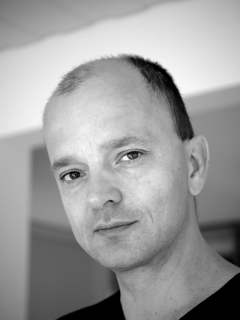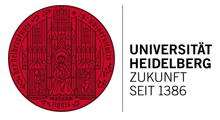Michael Baudis
Michael Baudis is a Professor of Bioinformatics at the Institute of Molecular Life Sciences, University of Zurich, and a group leader at the Swiss Institute of Bioinformatics.
| Contact | |
| Address |  Prof. Dr. Michael Baudis Prof. Dr. Michael BaudisInstitute of Molecular Life Sciences University of Zurich Winterthurerstrasse 190 Y-11F-13 CH-8057 Zurich Switzerland |
| ORCID | 0000-0002-9903-4248 |
| [email protected] | |
| github | @mbaudis :: @progenetix :: @baudisgroup |
| web | UZH DMLS :: SIB |
| Personal | |
| Date of birth | 1967-11-11 |
| Nationalities | Swiss & German |
| Family | Married since 1991, two children |
| [email protected] | |
| Education | |
| 2001 – 2003 | Postdoctoral Research Fellow, Pathology Department, Stanford University, U.S.A. |
| 1994 – 1998 | Research thesis in molecular cytogenetics, German Cancer Research Center (DKFZ) & University of Heidelberg, Germany |
| 1992 – 1998 | Student of Medicine, University of Heidelberg, Germany |
| Employment | |
| 2015 – current | Professor of Bioinformatics, Institute of Molecular Life Sciences, University of Zurich, Switzerland |
| 2007 – 2015 | Research Group Leader, Institute of Molecular Life Sciences, University of Zurich, Switzerland |
| 2006 – 2007 | Research Group Leader, Genetics Department, RWTH Aachen University Hospital, Germany |
| 2003 – 2006 | Research Assistant Professor, Department of Pediatric Oncology, University of Florida, Gainesville, U.S.A. |
| 1998 – 2000 | Attending Physician, Faculty of Internal Medicine V, University of Heidelberg, Germany |
Biosketch¶
Michael studied Medicine at Heidelberg University from which he graduated in 1998 and received his German medical license after internships at Heidelberg University Hospital.  Between 1994 - 1998, he performed his research thesis in Molecular Cytogenetics in the group of Peter Lichter at the German Cancer Research Center (DKFZ) Heidelberg, on the genomic analysis of malignant lymphomas, in the context of a multi-center clinical trial. He received his doctorate of the Medical Faculty of the Ruprecht-Karls Universität Heidelberg in 1999.
Between 1994 - 1998, he performed his research thesis in Molecular Cytogenetics in the group of Peter Lichter at the German Cancer Research Center (DKFZ) Heidelberg, on the genomic analysis of malignant lymphomas, in the context of a multi-center clinical trial. He received his doctorate of the Medical Faculty of the Ruprecht-Karls Universität Heidelberg in 1999.
While working as physician in Hematology & Oncology at Heidelberg University Hospital, Dr. Baudis continued his research on the molecular cytogenetics and biology of hematologic neoplasias.  In January 2001, he began a postdoctoral research project at Stanford University, in the group of Prof. Michael Cleary (Department of Pathology) with focus on the functional characterisation of E2A-HLF and E2A-PBX1 fusion genes in acute lymphoblastic leukemias, using in vitro cell line models with, array based gene expression analysis as well as murine essays. This work was extended during the following position as assistant professor at the University of Florida, starting in late 2003.
In January 2001, he began a postdoctoral research project at Stanford University, in the group of Prof. Michael Cleary (Department of Pathology) with focus on the functional characterisation of E2A-HLF and E2A-PBX1 fusion genes in acute lymphoblastic leukemias, using in vitro cell line models with, array based gene expression analysis as well as murine essays. This work was extended during the following position as assistant professor at the University of Florida, starting in late 2003.
During his thesis at the DKFZ, Michael became interested in the systematic collection of genome screening data, then from the CGH experiments performed at the Lichter lab. Supported by the University of Heidelberg's Medical School, he extended those early efforts to the systematic collection of original and publication derived genomic copy number data from malignant lymphomas.  The website of the progenetix.net molecular cancer cytogenetics website was launched in early 2001, accompanied by a publication in Bioinformatics.
The website of the progenetix.net molecular cancer cytogenetics website was launched in early 2001, accompanied by a publication in Bioinformatics.
After the position at UF and a brief stay at the RWTH Aachen (Human Genetics; 2006-2007), since August 2007 Michael has been a group leader and Professor of Bionformatics (2015) at the Department of Molecular Life Sciences of the University of Zürich, as well as associated with the Swiss Institute of Bioinformatics SIB.
The work of his Computational Oncogenomics group is centered on the comparative analysis of genomic profiling data in cancer, with a focus on somatic copy number variations (CNV, CNA). With the Progenetix repository, the group provides one of the largest reference resources of curated genomic profiling and associated metadata covering the majority of cancer types.
Apart from the analysis of cancer genome data, in recent years Michael has worked to facilitate the access to genomic data for research on a global scale.  Since its founding in 2014, Michael has been a member of the Global Alliance for Genomics and Health GA4GH, currently serving in the steering committee and as co-lead of its "Discovery" workstream and - since 2024 - as member of the GA4GH Strategic Leadership Committee. Related to the work in the Global Alliance, Michael also co-chairs the ELIXIR Beacon project, which develops APIs to query genomic data collections in a privacy-protecting manner.
Since its founding in 2014, Michael has been a member of the Global Alliance for Genomics and Health GA4GH, currently serving in the steering committee and as co-lead of its "Discovery" workstream and - since 2024 - as member of the GA4GH Strategic Leadership Committee. Related to the work in the Global Alliance, Michael also co-chairs the ELIXIR Beacon project, which develops APIs to query genomic data collections in a privacy-protecting manner. ![]() Here, the main focus on the group is in prototyping protocol extensions with demonstrator implementation in the Beacon+ project, connected to the Progenetix repository.
Here, the main focus on the group is in prototyping protocol extensions with demonstrator implementation in the Beacon+ project, connected to the Progenetix repository.
In the Swiss context, Michael has been involved in advising the Swiss Personalized Health Network (SPHN) initiative and lead its "Bioinformatics and Data Analytics" working group.